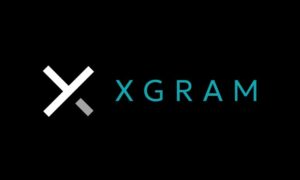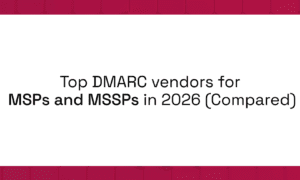The ACT (American College Testing) is one of the primary standardized tests used for college admissions in the United States. It assesses a student’s academic readiness for college by evaluating their knowledge and skills in areas such as English, Math, Reading, and Science. A high score on the ACT can significantly improve a student’s chances of being accepted into their desired college or university, making the test preparation process incredibly important.
To prepare effectively for the ACT, students often turn to various resources, ranging from practice tests to prep books, online courses, and tutoring. However, some students may be tempted by “ACT practice test dumps” that claim to provide real or simulated test questions and answers. While these dumps might seem like a quick solution for success, they carry significant risks and are not the most effective way to prepare. In this article, we will explore what ACT practice test dumps are, the risks associated with using them, and alternative, more effective methods of preparing for the ACT.
What Are ACT Practice Test Dumps?
ACT Practice Test Dumps refer to collections of ACT test questions and their corresponding answers that are typically shared or sold online, often by unregulated or unauthorized sources. These dumps may contain questions from real past ACT exams or fabricated questions that mimic the format and style of the test. They are often marketed as a shortcut to success, providing students with the exact questions they will encounter on the exam.
These dumps usually come in several forms:
- Complete Practice Tests: These dumps may contain entire practice exams, including all sections of the ACT (English, Math, Reading, and Science), mimicking the structure and timing of the actual test.
- Section-Specific Dumps: Some dumps focus on specific sections of the ACT, such as Math, Reading, or English, providing targeted practice in areas where students might feel they need the most help.
- Answer Keys and Rationales: Many dumps also include answer keys that explain why certain answers are correct or incorrect. While this can seem helpful, the explanations provided may not always be accurate or comprehensive.
The idea behind using these dumps is to help students familiarize themselves with the content and format of the ACT so they can perform better on test day. However, there are several significant drawbacks to relying on these materials for test preparation.
The Appeal of ACT Practice Test Dumps
The main reason students may be drawn to ACT practice test dumps is the desire for convenience. Preparing for the ACT requires time and effort, and many students are eager to find resources that will make their studying more efficient. Test dumps, often marketed as providing real test questions, may seem like an easy and inexpensive way to get ahead.
Additionally, some students may feel overwhelmed by the sheer volume of material they need to review before test day. Dumps promise the convenience of having a collection of questions that are thought to be similar to the actual test, which can be alluring to students looking for a shortcut.
However, while these dumps may seem like a quick fix, they come with significant risks that can hinder rather than help a student’s performance on the ACT.
Risks of Using ACT Practice Test Dumps
While the temptation to use ACT practice test dumps may be strong, relying on these resources is highly problematic. Here are some of the main risks associated with using test dumps:
- Violation of ACT’s Ethical Standards: Using or distributing ACT practice test dumps is a violation of ACT’s ethical standards and policies. The ACT is a standardized test that is protected by copyright laws, and using materials that were not officially released by ACT is considered unethical. The ACT organization works hard to maintain the integrity of its exam, and using unauthorized materials undermines the fairness and accuracy of the testing process. Students caught using these dumps could face serious consequences, including having their test scores invalidated or being banned from future testing.
- Inaccurate or Outdated Content: Many of the ACT test dumps available online are outdated or inaccurate. The ACT exam is periodically updated to reflect changes in academic standards and to ensure fairness. Therefore, practice test dumps that were created from old exams or fabricated questions may not accurately represent the current content or difficulty level of the ACT. Relying on outdated dumps could lead to students studying irrelevant material that won’t appear on the actual test.
- Limited Learning and Skill Development: The ACT is not a test of rote memorization. It assesses a student’s ability to think critically, solve problems, and apply knowledge in different contexts. Simply memorizing questions and answers from a test dump does not allow students to develop the skills needed to succeed on the ACT. By relying on test dumps, students miss the opportunity to understand the reasoning behind each question and answer choice, which is critical for improving their performance.
The ACT requires students to demonstrate their understanding of key concepts and their ability to apply those concepts to new problems. Test dumps, however, provide a superficial level of preparation that may not develop a student’s analytical and problem-solving skills, which are crucial for success on the actual test. - False Sense of Confidence: If the questions in an ACT practice test dump are too easy, students may develop a false sense of confidence about their preparedness. They might assume that if they do well on the practice tests, they will easily perform well on the actual exam. However, the ACT is known for its challenging questions and time constraints, and students who have not adequately prepared for these aspects may be caught off guard by the difficulty level on test day.
A false sense of security could lead students to neglect other important aspects of preparation, such as time management, test-taking strategies, and in-depth content review, all of which are essential for achieving a high score on the ACT. - Risk of Fraud and Scams: Many websites that offer ACT practice test dumps are not legitimate and may engage in fraudulent activities. These sites often sell low-quality or completely inaccurate materials, leaving students with little to no value for their money. Furthermore, many of these websites may not be secure, putting students’ personal and financial information at risk of being stolen or misused.
In some cases, students may also encounter malware or viruses when attempting to download test dumps from these unreliable sources, leading to even greater risks for their computers or devices. - Missed Opportunities for Comprehensive Review: The ACT covers a broad range of content, and comprehensive preparation is necessary to succeed. By relying solely on test dumps, students risk missing out on a more structured and complete review of the material. Effective ACT preparation requires mastering concepts across different subjects, practicing time management, and developing strategies for tackling different types of questions.
Using dumps alone provides limited exposure to the full range of material on the ACT and can leave students unprepared for the variety of questions they may encounter.
Effective and Ethical Ways to Prepare for the ACT
Instead of relying on ACT practice test dumps, students should focus on legitimate and effective methods for preparing for the exam. Here are several strategies that can help students prepare in a more comprehensive and ethical way:
- Use Official ACT Prep Materials: The ACT organization offers a variety of official prep materials, including free practice tests, sample questions, and study guides. These materials are an excellent resource for students preparing for the ACT because they accurately reflect the format, content, and difficulty level of the actual exam. Official materials also provide answer explanations, helping students understand why a particular answer is correct or incorrect.
- Take Full-Length Practice Tests: One of the best ways to prepare for the ACT is by taking full-length practice tests under timed conditions. This will help students become familiar with the test format, build stamina for the four-hour exam, and improve their time management skills. Official ACT practice tests are available on the ACT website and can be used to simulate the real testing experience.
- Focus on Skill Development: The ACT tests a wide range of skills, including reading comprehension, mathematical reasoning, and scientific analysis. Rather than focusing solely on memorizing practice questions, students should prioritize developing their skills in these areas. Reviewing key concepts in English, math, reading, and science and practicing applying them to new problems will better prepare students for the ACT.
- Use Online Prep Courses and Tutoring: Online prep courses and tutoring services offer structured, comprehensive preparation for the ACT. These courses often include instructional videos, practice questions, test-taking strategies, and personalized feedback. For students who need extra support, working with a tutor can be highly beneficial, as they can receive targeted help on areas where they struggle.
- Review Mistakes and Learn from Them: When practicing with official ACT questions, students should take time to review their mistakes and understand why they answered a question incorrectly. This will help them avoid making the same mistakes on the actual test and build a deeper understanding of the material.
- Develop Test-Taking Strategies: In addition to mastering content, students should develop strategies for managing time, answering multiple-choice questions, and navigating the different sections of the ACT. Understanding how to approach questions strategically can significantly improve a student’s performance on test day.
Conclusion
While ACT practice test dumps may seem like a convenient shortcut to success, they carry significant risks, including ethical violations, outdated content, and limited skill development. Instead of relying on these dumps, students should focus on comprehensive, ethical preparation methods, such as using official ACT prep materials, taking full-length practice tests, and honing test-taking strategies. By preparing effectively and ethically, students can increase their chances of achieving a high score on the ACT and gaining admission to their desired colleges and universities.

































